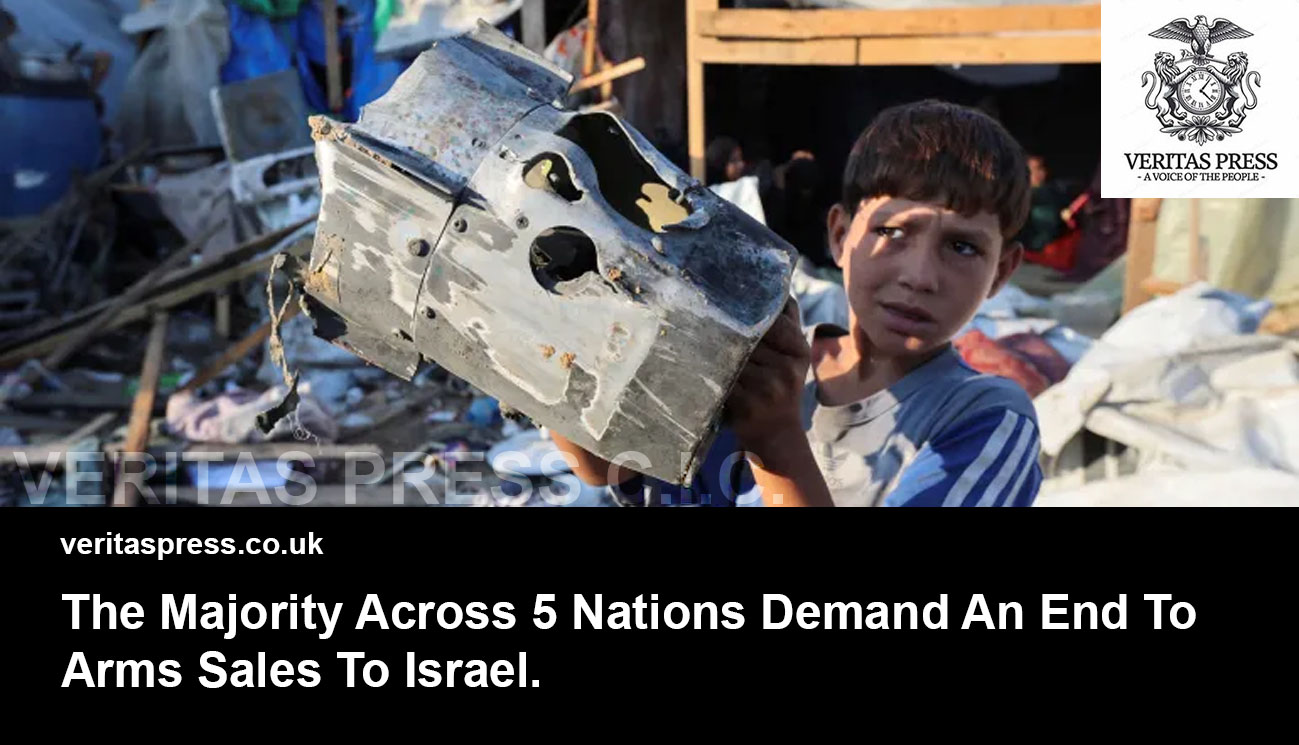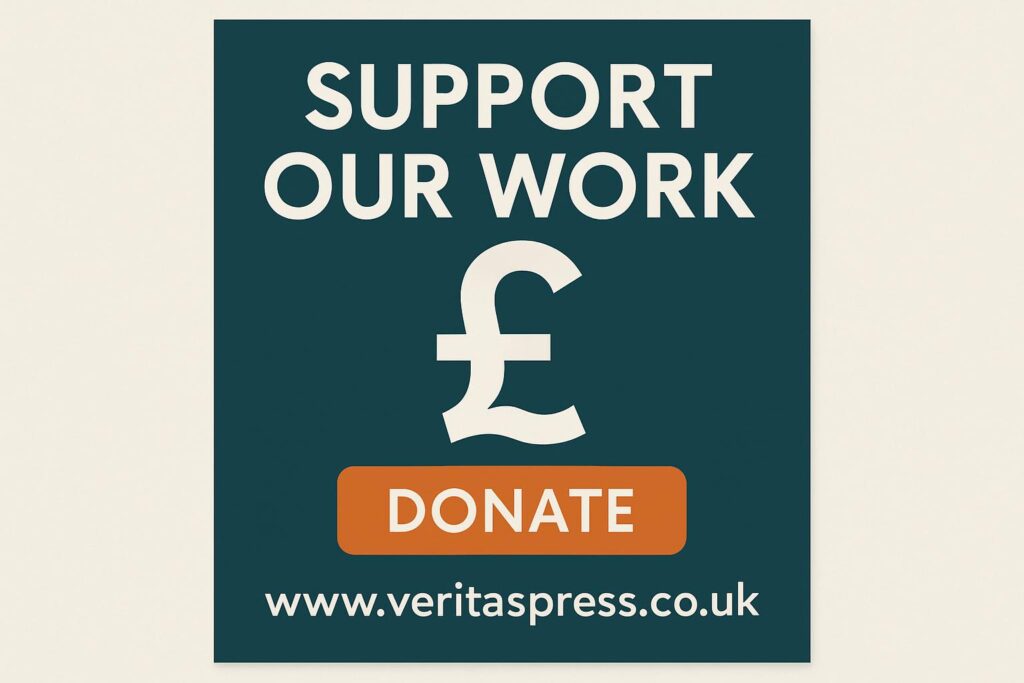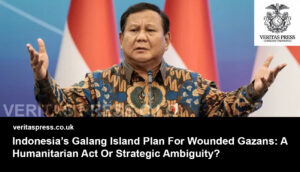A sweeping new poll spanning five countries, Brazil, Colombia, Greece, South Africa, and Spain, finds that majorities in each believe both governments and private weapons companies should either halt or significantly reduce arms trade with Israel, as its military campaign in Gaza intensifies.
Poll Snapshot
- Spain leads with 58% demanding a complete halt to weapons deals, followed closely by Greece at 57%, and Colombia at 52%.
- In Brazil, 37% call for a total cessation, while another 22% urge reductions. South Africa registers 46% for a complete stop and 20% for reductions.
The poll, executed by Pollfish and commissioned by the Global Energy Embargo for Palestine (endorsed by Progressive International), also probes broader public sentiment:
- Opposition to Israel’s military actions in Gaza is particularly strong in Greece (61%) and Spain (60%), moderate in Colombia (50%), and lower in Brazil and South Africa (30%), where support for the campaign hovers at around 33% and 20%, respectively.
Activist voices are unequivocal. Ana Sanchez of Global Energy Embargo for Palestine declared:
“The people have spoken… they refuse to be complicit,” calling for a decisive break from “the fuel that powers settler colonialism, apartheid and genocide.”
Meanwhile, David Adler of Progressive International emphasised:
“The message from the peoples of the world is loud and clear: They want action to end the assault on Gaza, not just words.”
Momentum Beyond The Poll: Financial Institutions Face Pressure – Norway’s Sovereign Wealth Fund Comes Under Scrutiny.
In a remarkable development coinciding with these public sentiments, Norway’s $1.9–2 trillion sovereign wealth fund is reviewing its investments in Israeli companies amid mounting concerns about complicity in Gaza-related violence.
- Aftenposten revealed the fund’s increased stake, from 1.3% to 2.09%, in Bet Shemesh Engines Ltd (BSEL), which supplies jet engine services to Israeli military aircraft. Norway’s Prime Minister Jonas Gahr Støre called the investment “worrying,” prompting Finance Minister Jens Stoltenberg to demand a review within 15 days.
- The fund holds investments in 65 Israeli companies, valued close to $1.95 billion at the end of 2024. It has already divested from telecom and energy firms like Bezeq and Paz and is now evaluating several Israeli banks for potential exclusion.
This move emerges against a backdrop of growing political and activist pressure in Norway, with protests inside its parliament and beyond by those who argue that economic ties equate to complicity.
Broader Impact: Diplomatic And Grassroots Responses.
- Diplomatic Actions: Colombia severed diplomatic ties with Israel and hosted a Hague Group emergency summit in Bogotá (July 15–16, 2025), where 12 countries committed to arms and energy embargoes on Israel.
- Wider Disapproval of Israel: A Pew Research Centre poll (spring 2025) reveals negative views of Israel and its leadership across most countries surveyed, especially in Greece, Spain, Australia, and Sweden, where unfavourable opinions and low confidence in Prime Minister Netanyahu prevail.
- Public Demonstrations: In Greece, protests continue to escalate, most recently, a demonstration thwarted an Israeli cruise ship from docking in Syros, rerouting it to Cyprus amid safety concerns.
In Summary: The Walls of Complicity Are Cracking – But Not Fast Enough.
This cross-continental poll should be a wake-up call for both governments and corporations: the public does not want to bankroll genocide. From Brazil to South Africa, Greece to Spain, the global majority is rejecting the policies and partnerships that continue to fuel Israel’s brutal assault on Gaza. The message is unmistakable: cut the supply lines to war crimes.
The new poll underscores a growing global demand for accountability and action, as citizens in far-flung countries align in rejecting Israel’s military campaign and the economic structures supporting it. At the same time, shifts in institutional policy, such as Norway’s imminent review of Israeli investments, suggest these public pressures are beginning to reshape financial and political behaviour.
Yet even as these voices grow louder, most political and corporate elites remain complicit, propping up Israel’s military machine through arms deals, investment portfolios, and diplomatic protection. Norway’s recent review of its sovereign wealth fund came only after public outrage exposed its direct stake in an Israeli company supplying jet parts to the IDF. Danish shipping giant Maersk divested from settlement-linked firms not out of principle, but under sustained activist pressure. These are not acts of moral leadership; they are reactive, reluctant withdrawals from a collapsing façade.
Behind the scenes, Western-controlled weapons pooling arrangements and joint procurement systems continue to grant Israel privileged access to some of the most advanced arms on the planet. These mechanisms, designed to streamline weapons markets across NATO-aligned and EU-friendly states, allow Israel to bypass bilateral embargoes and still obtain cutting-edge surveillance, AI targeting systems, and F-35 components. This quiet form of collective complicity must be dismantled.
In the face of over 100,000 Palestinian deaths, widespread famine, mass displacement, and the highest per-capita rate of child amputees in the world, it is no longer credible for states to claim neutrality. Every weapons contract signed, every tank shell delivered, every pension dollar invested in Israeli arms manufacturers, is a direct contribution to a campaign of state violence that the United Nations special rapporteur and the International Court of Justice have labelled genocidal.
This poll does not stand in isolation; it reflects a fundamental rupture between people and power. Citizens now understand what their leaders pretend not to: there is no such thing as an apolitical weapons shipment in the context of ongoing war crimes. And while governments stall and corporations hide behind red tape, people are demanding real action, not just condemnation, but consequences: embargoes, divestments, asset freezes, and the revocation of military access privileges.
The longer institutions fail to act, the more they reveal the truth: this is not passive negligence, it is active complicity. And history will not look kindly on those who chose to arm a genocide in the face of overwhelming evidence and rising global dissent.




























